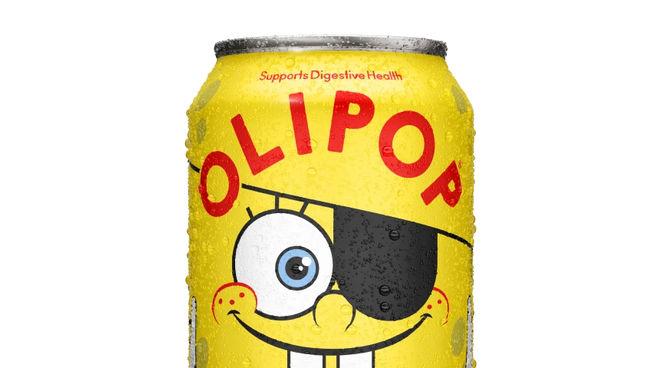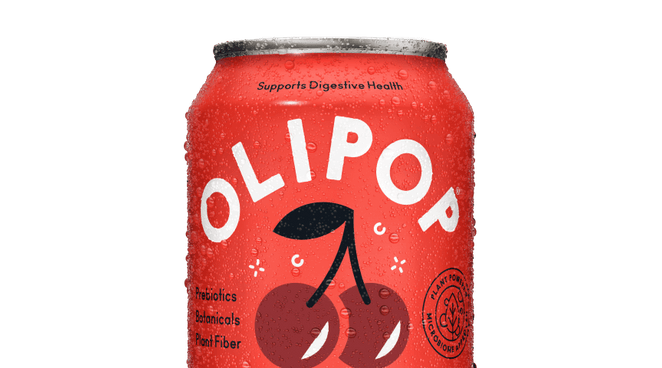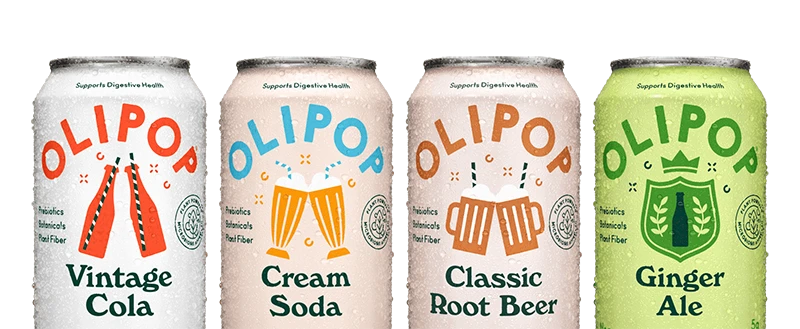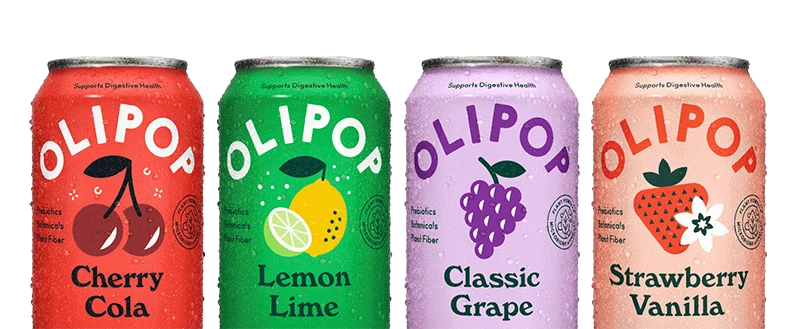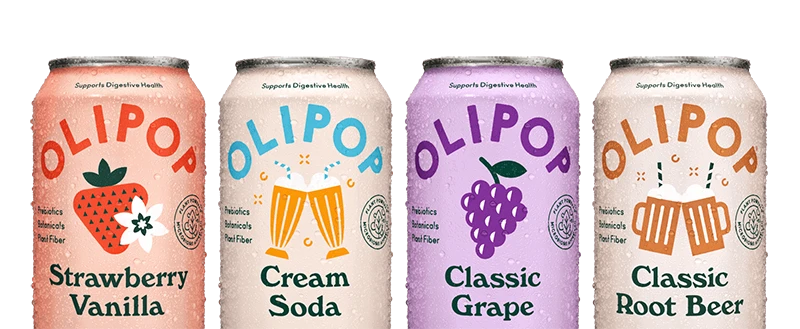Editor's Note: This article is reviewed by Lauren Manaker MS, RDN, LD, a registered dietitian and a paid contributor to OLIPOP. She specializes in digestive health and reviews OLIPOP content for scientific accuracy.
As consumers, we've become more aware of our dietary choices and their effects on our bodies. As a result, the search for healthier sugar alternatives has become an important topic of debate and discussion. In recent years, many contenders have risen to prominence. But today, we're embarking on a comparative exploration between two of the most buzzed-about sugar substitutes: Stevia and erythritol. With help from OLIPOP’s own Registered Dietitian, let’s investigate these two sugar alternatives…
What Is Stevia?
Stevia, a plant-based sugar alternative, has captivated health-conscious consumers for years. Derived from the leaves of the South American Stevia rebaudiana plant, this sugar substitute boasts a centuries-old origin story. Indigenous communities in Paraguay and Brazil have used Stevia leaves as a sweetener for generations, valuing it as both a sweetener and a medicinal herb.
This origin sets Stevia apart from many other sugar alternatives, evoking an earthy, botanical charm. The sweetness in Stevia comes from compounds called steviol glycosides, primarily stevioside and rebaudioside. These can be up to 300 times sweeter than traditional sugar, ensuring that a little goes a long way. In recent years, Stevia has gained popularity as a sugar alternative in various products, from teas and health-conscious sodas like OLIPOP, to baked goods and dietary supplements.
What Is Erythritol?
Erythritol, on the other hand, is an artificial sweetener that comes from a family of sugar alcohols. Don't let the name mislead you; it doesn't have the intoxicating effects of alcohol but rather belongs to a class of compounds known as polyols. Erythritol is primarily manufactured through a fermentation process involving yeast and glucose from corn or wheat starch.
The result? A white, crystalline powder with a taste profile that attempts to mimic sugar's sweetness. Erythritol provides about 70% of the sweetness of sugar, making it less potent than Stevia. It also has the added advantage of being nearly calorie-free, as the human body cannot metabolize it efficiently. This has catapulted it to the forefront of sugar substitutes.
Stevia vs Erythritol
Nutritional Value
When it comes to their nutritional value, Stevia and erythritol have several similarities. Stevia is a nutritional minimalist, offering next to zero calories, carbohydrates, and nutrients. It's essentially a sweet ghost, providing sweetness without any substantive nutritional baggage. This makes it a favorite among those who aim to watch their calorie and carbohydrate intake.
Erythritol, while still low in calories, has a slightly more complex nutritional profile. It provides around 0.2 calories per gram, and it doesn't contribute to net carbohydrate or sugar intake since the human body absorbs it very poorly. Additionally, erythritol doesn't contain any vitamins or minerals, so it brings very few nutritional benefits to the table.
Effects on Blood Sugar
One of the critical considerations when choosing a sugar alternative is its impact on blood sugar levels. Stevia, with its negligible carbohydrate content, is a top choice for people looking to maintain blood sugar levels already within the normal range.
Erythritol also shines in this department. Despite its sweet taste, erythritol doesn't significantly affect blood sugar levels. Because the body absorbs but doesn't metabolize it, it passes through the digestive system virtually unchanged, leading to minimal or no increase in blood glucose. This also makes erythritol a safe choice for those watching their blood sugar.
Caloric Impact
Erythritol and Stevia both earn points for their low-calorie count, making them favorites among those watching their intakes. Erythritol contributes only about 0.2 calories per gram compared to the four calories per gram of sugar. Stevia is also a zero-calorie sweetener.
Uses in Foods & Beverages
Erythritol measures more like sugar and caramelizes when exposed to heat. This means that baking enthusiasts might find erythritol more accommodating in recipes that depend on sugar's structural properties. Stevia, by contrast, is often preferred by those looking for food and drinks derived from plant-based sources.
Erythritol Side Effects: Is Erythritol Safe?
As with any sugar substitute, it's vital to scrutinize potential side effects. Erythritol, although generally recognized as safe by health authorities like the FDA and WHO, can lead to digestive discomfort when consumed in excess. Some individuals may experience gas, bloating, or diarrhea, especially if they have a sensitivity to sugar alcohol. However, these side effects tend to be less severe compared to other sugar alcohols like xylitol.
However, in a recent study conducted by Nature Medicine, researchers suggest that elevated levels of erythritol could cause blood clotting, stroke, heart attack, and death. Particularly for those with diabetes, high levels of erythritol in the blood nearly doubled the likelihood of heart attacks and strokes. It is also noteworthy that the body can produce erythritol, so dietary intake may not be completely to blame. By contrast, Stevia, derived from a natural plant source, has a reputation for being gentler on the digestive system and seems to pose minimal health risks.
Stevia vs. Erythritol: The Takeaway
In this sugar substitute showdown between Stevia and erythritol, both of these contenders have broad appeal. Stevia's intense sweetness charms many, while erythritol's resemblance to sugar makes it a formidable opponent. However, the potential health risks of erythritol and its artificial origins make this sweetener less appealing to our OLIPOP team. This is why we chose Stevia as our sugar substitute of choice.
In your own daily life, deciding between these two sugar alternatives ultimately rests on your taste buds, dietary needs, and how your body responds to these sugar substitutes. As you navigate the culinary landscape of healthier choices, these sweeteners stand ready to transform your recipes and redefine your relationship with sweetness, one delectable sip at a time.
Sources
- Witkowski, M., Nemet, I., Alamri, H. et al. The artificial sweetener erythritol and cardiovascular event risk. Nat Med 29, 710–718 (2023). https://doi.org/10.1038/s41591-023-02223-9
- Ortiz, S., & Field, M. S. (2020). Mammalian metabolism of erythritol: a predictive biomarker of metabolic dysfunction. Current Opinion in Clinical Nutrition and Metabolic Care, 23(5), 296–301. https://doi.org/10.1097/mco.0000000000000665
- Stevia and erythritol are two sugar alternatives that are increasing in popularity as consumers make more discerning dietary choices.
- Stevia comes from a plant-based source, is not associated with health risks for most people, and is a potent sugar substitute.
- Erythritol is an artificial lab-created sugar alcohol that contains few calories, but recent studies suggest it may pose significant health risks.




